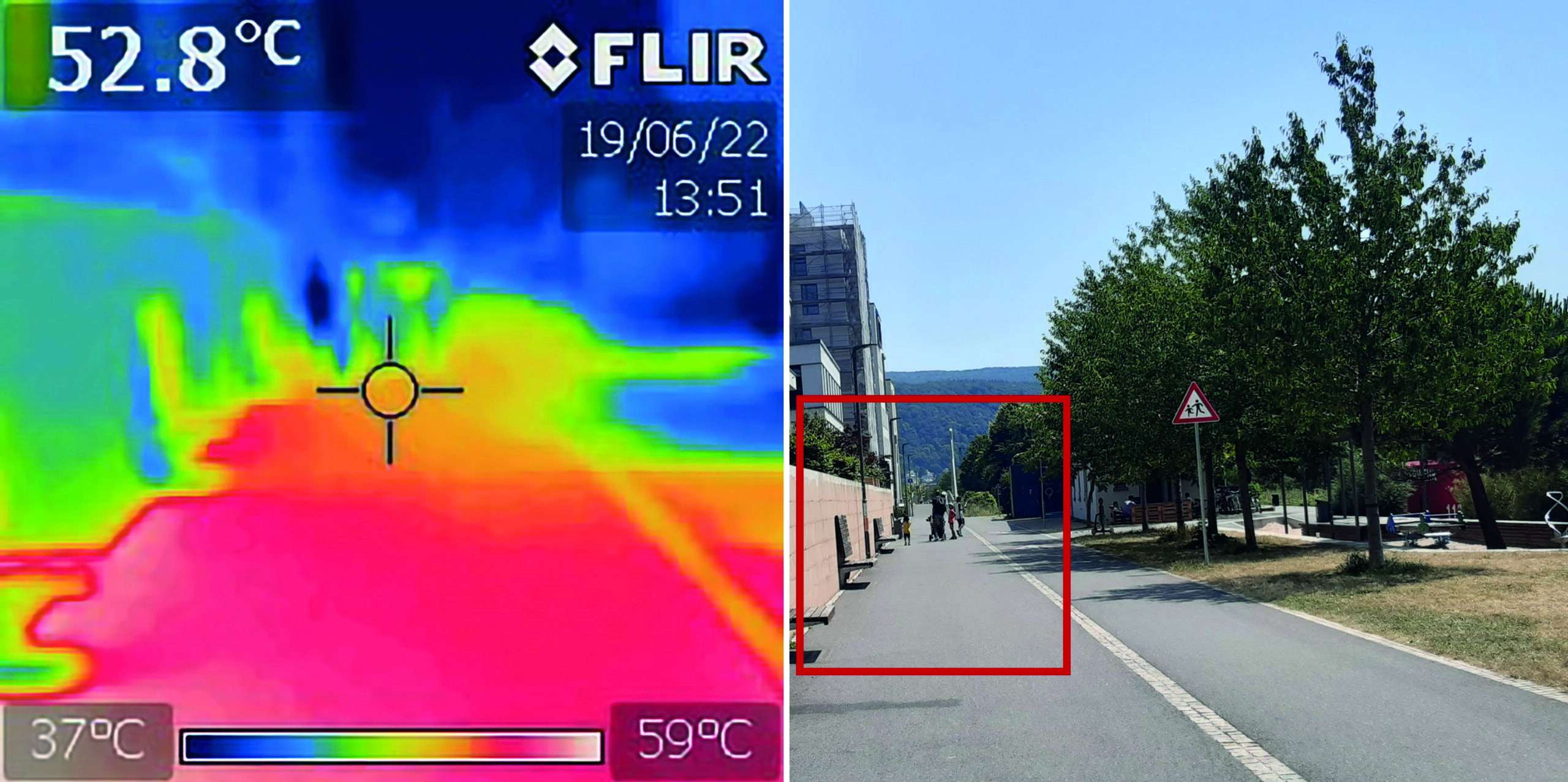Category: TdLab Geography
-

“How to assess the needs of vulnerable population groups towards heat-sensitive routing?”
The research team of the transdisciplinary project HEAL (Heat Adaptation for Vulnerable Population Groups), focusing on providing heat adaptation measures for vulnerable groups in Heidelberg, has published a research paper titled “How to assess the needs of vulnerable population groups towards heat-sensitive routing? An evidence-based and practical approach to reducing urban heat stress”. The paper…
-
Kick-off workshop for the research program “Innovation for adaptation to climate change” by Baden-Württemberg Stiftung
The project HEAL (HeiGIT, GIScience, TdLab Geographie) is funded by the Baden-Württemberg Stiftung as part of the research program “Innovation for adaptation to climate change“. HEAL aims at an extension of the openrouteservice to allow the generation of heat avoiding routes, using Heidelberg as a test case. The project aims specifically at vulnerable groups such…
-
Impulse aus der Corona-Krise
“International erfolgreiche Wissenschaft ist bislang untrennbar verknüpft mit weltweiter Reiseaktivität. Der vor allem durch Flugreisen verursachte Treibhausgasausstoß steht im Widerspruch zum Klimaschutz. Die Corona-Krise wirkte disruptiv auf etablierte Praktiken des Austauschs und zeigte plötzlich Wege auf, die zuvor kaum denkbar waren. Doch was passiert nach der Pandemie? Wie kann es gelingen, auf den Erfahrungen aufbauend,…
-
TdLab Geography at the ITD21 conference
From 13 to 17 September 2021, the “International Transdisciplinarity Conference ITD21” took place in online format. The TdLab Geography participated with the contribution “Towards a co-design of adaptation measures to heat events in cities: examples from Heidelberg, Germany”. In a self-produced video, Nicole Aeschbach and Kathrin Foshag presented two studies on climate change adaptation from…
-
COVID-19 – Geographien der Zäsur: CfP
Call for papers für vier Sessions zu “COVID-19 – Geographien der Zäsur” im Rahmen der #GeoWoche2021 Die COVID-19-Pandemie verändert nun bereits im zweiten Jahr Gesellschaften weltweit in tiefgreifender Weise. Diese Veränderungen sind so fundamental und betreffen so viele Bereiche des Lebens, dass sie als Zäsur bezeichnet werden können. In vier thematischen Sitzungen im Rahmen der…
-
Klima-Netzwerk PRIO1: Herbstcamp
Neue Konzepte zur Bewältigung der Klimakrise und zur Gestaltung der Zukunft standen im Mittelpunkt des “Digitalen Herbstcamp” von PRIO1, einem neu gegründeten Klima-Netzwerk. Die Teilnehmer*innen – zwischen 16 und 25 Jahre alt – entwickelten vom 13. bis 15. November 2020 im Rahmen von parallel laufenden Workshops Ideen und konkrete Aktivitäten zu den Handlungsfeldern “Wohlstand und…
-
Digital Teaching Award featured in Magazine of Heidelberg University
The digital teaching prize by Heidelberg University that was awarded to two members of our institute is featured in a current special edition of the university’s magazine UNISPIEGEL: Find the full article on “Adjustment to digital formats” (translation by the author) on page 2 of the magazine here (in German). Information on the awardees Dr.…
-
Digital teaching prize awarded by Heidelberg University
In recognition of the high efforts of lecturers in the past summer semester, the rectorate of Heidelberg University awarded prizes for digital teaching. Two of in total six prizes were awarded to lecturers at the Institute of Geography, which shows the positive recognition of the past semester’s endeavors both from the side of students and…
-
Hitzebelastung in der Heidelberger Bahnstadt – Interview mit Kathrin Foshag
Die große Hitzebelastung durch steigende Temperaturen und eine zunehmende Zahl heißer Tage in Städten wird derzeit auch wieder in Heidelberg spürbar. In einem aktuellen Beitrag des SWR betont Dr. Kathrin Foshag die große Bedeutung von städtebaulichen Beschattungsmaßnahmen, um die enorme Hitzebelastung auf öffentlichen Plätzen zu reduzieren. Link zum Beitrag Dr. Kathrin Foshag erforschte in ihrem…
-
Wo mehr Grün wirklich helfen könnte: Interview mit Kathrin Foshag
Welchen Einfluss haben steigende Temperaturen und die zunehmende Zahl heißer Tage auf Städte, insbesondere auf die Hitzebelastung öffentlicher Plätze? Mit dieser Frage beschäftigte sich das Dissertationsprojekt von Dr. Kathrin Foshag an der Heidelberg School of Education. Nachdem die Ergebnisse kürzlich unter dem Titel “Viability of public spaces in cities under increasing heat: A transdisciplinary approach”…
-
Transdisciplinary study on climate change adaptation featured in Heidelberg University Newsroom
No place for climate change: A recent transdisciplinary study on the viability of public spaces in cities under increasing heat was featured in the official Heidelberg University Newsroom (English version here). The study has been conducted by a Heidelberg research team led by Dr. Kathrin Foshag and investigated the heat stress in selected urban squares…
-
No place for climate change
Transdisciplinary study on climate change adaptation of urban squares Climate change is not only taking place on distant continents or far into the future, but here and now. In Germany, too, the temperature is rising – and even faster than the global average – and the number of hot days is increasing. Especially in cities,…


